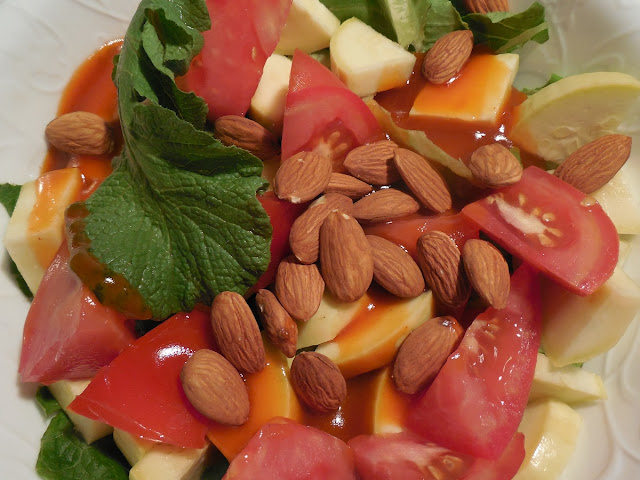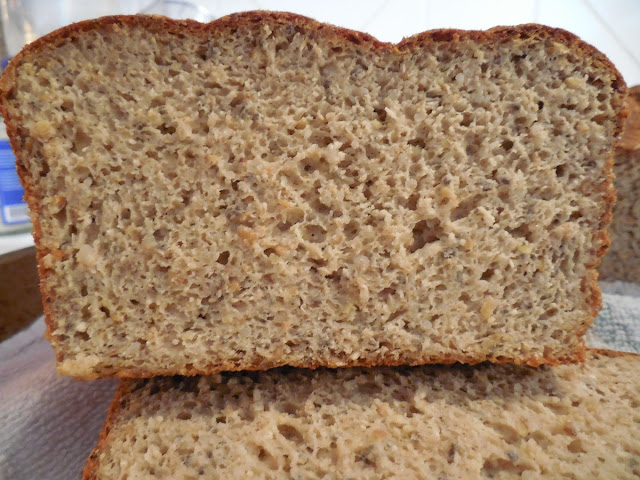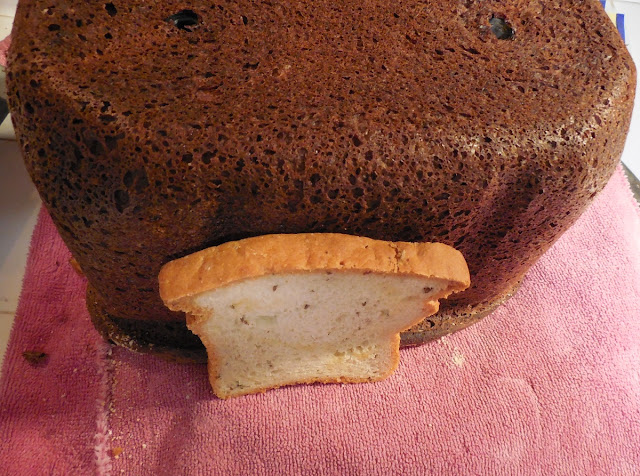Research - Mystery Liver Enzyme Elevations Plus Top 10 Tips for Eating more Liver without Tears
Raise your hand if your doctor has said something like "your liver enzymes are slightly above normal, but it's nothing to worry about" (yet). People hear that all the time. Most people don't suspect Celiac could be the cause of it, but it can. One of the many effects that Celiac can have on the body's organs is "Celiac hepatitis." After the featured article are my tips for preparing liver without fuss in your diet.
The article:
LIVER INVOLVEMENT IN CELIAC DISEASE (capitals are sic)
Minerva Med. Author manuscript; available in PMC 2014 Mar 4.
Published in final edited form as:
Minerva Med. 2008 Dec; 99(6): 595–604.
PMCID: PMC3941070
NIHMSID: NIHMS554086
PMID: 19034257
Alberto Rubio-Tapia, MD and Joseph A. Murray, MD
Division of Gastroenterology and Hepatology, Department of Medicine Mayo Clinic College of Medicine Rochester, MN 55905
Abstract (full article available for free online):
But they give no useful advice to patients. That's not surprising in a journal, but still, doctors need to know what to say to patients who are suffering today. No discussion of Vitamins C, D or E, cysteine, glutathione or nutritional approaches are present, except a general acknowledgement that the Gluten Free Diet is likely to prevent complications.
I think it's interesting that we're having an epidemic of Celiac Disease (CD) at the same time that we're having an epidemic of Non Alcoholic Fatty Liver Disease (NAFLD). And I think this study needs more exposure because it draws a link between liver illness and a higher prevalence of CD. Most articles on the subject of the CD prevalence increase leave you with a feeling of "nobody knows why" but there are some juicy hints in the literature.
Since my belief is that my Celiac disease was missed for decades, this fits with a possible mechanism for how my liver became inflamed and painful before my gluten sensitivity was diagnosed. Possibly my sensitivity to gluten would've remained dormant if I hadn't had a reactivation of Epstein Barr Virus in midlife.But that's a lot of theory and since neither was diagnosed without my active involvement, it's a bit of a question which came first.
On the other hand, the results speak for themselves. Including liver in my diet, is one part of my health maintenance routine, and if I ignore it, I backslide into chronic liver pain, which tends to trigger a chorus of aches on the right side of my body, usually triggering a migraine.
It should be noted that these instructions do not take into consideration religious taboos and many of them apply here. Hindus do not eat beef, and it's not Kosher to have meals that include both dairy and meat. Please be sensitive to your patient's needs, or your guest's needs. This goes double for restaurants where just using the same bowl where meat and milk were soaked together... even after it was washed, would render all food in that bowl to be not-Kosher anymore in the strictest interpretation. There's always a way to work these issues out, but it might take some modification of my instructions.
1. The most important tip: If you're not going to eat it in two days, freeze it. You can easily buy beef livers, and chicken livers in most supermarkets in the USA. The beef livers taste almost like steak, especially if you follow my hint below about under-cooking it.
2. If you're going to freeze it, separate it into single serve or double serve sections first. Frozen liver is hard to separate later.
3. Look for organic and grass fed (or free range if chicken) liver. Both are essential. Alfalfa hay is a grass and it's also usually GMO. If you're looking at this for healing yourself, instead of just daily food, then both organic and grass fed matters. That said, if all you can afford is frozen basic calves liver, it's better than no liver!
4. If you go to Whole Foods, be aware that their butchers tend to have "an attitude" meaning they think they know more than you. Which is probably true on many subjects. But few of them bother to eat liver themselves. So you have to know to ask for it to be sliced. Some of them are better than others at slicing. Ask for and make note of the name of anyone there who is good at slicing. Slices should be about 1/2 to 3/4 inches thick. Occasionally you get a batch of slices that looks mangled instead of sliced. That's why you ask for names. So you can ask for the skilled one next time. Identifying a skilled slicing operator is key to a good time with liver.
5. When you get it home, this is an extra-perishable item, and even more so after slicing. So keep one portion out and freeze the rest. Two portions, if you plan to eat liver daily for a while, to heal. Pack about 6-8 ounces per portion.
6. Research liver and onions and the many variations with eggs, with hash brown potatoes, etc. Also look into the "undercooked" options you will find online. If you enjoy a rare steak, then medium-rare liver will satisfy that hunger with only a minor downside. Liver has an aftertaste that some people love and others don't. Otherwise, beef liver tastes very much like steak.
7. Soak liver in slightly salty water-milk mix. You can place the frozen liver in the liquid and let it thaw for half an hour to an hour, then cook. Just soaking in salty water helps reduce the aftertaste.
8. Cube to saute or cook the entire piece whole to make a "liver steak." A liver steak is pan seared on both sides for 2 minutes each side. Add increments of 30 seconds to the time if you want it more well-done. If you reach 10 minutes, it will be fully cooked, but not overcooked. I've tried most of those variations and each has its own character.
9. All liver has some chewy bits that are best chewed and then politely spit out in your napkin. Fact of life.. don't expect haute liver cuisine (I opt out of foie gras, but to each their own). Well, you could do a fancy liver dish, but a lot of liver would go to waste. My mom used to spend about 20 min carefully removing the membranes and tough fibers from chicken livers. I just chew, but I admit that if I had kids, I'd spend the time on removal. Having kids that love liver can be lifesaving, so it's worth a bit of work. (Thank you, mom!)
10. Learn to make liver pate. That's the best advice there is. Think of it as a homemade version of liverwurst and sneak it into sandwiches.
More tips for how to eat organ meats and not be grossed out by it can be found here:
https://scdlifestyle.com/2017/04/7-health-benefits-of-organ-meats/ Archive link ; Excerpt:
Even fruits and veggies are parboiled before freezing to stop enzyme activity that makes them go bad while frozen.Considering liver is chock full of enzymes, it's not a bad idea to parboil any liver you have too much of. Such as if you buy a whole liver from a farmer. I've lost more liver to long storage than I care to remember. Keep in mind frozen just slows spoilage, it doesn't stop it.
I hope you've found some new ideas for how to enjoy liver and some new reasons to try it. Let me know how it works out for you.
The article:
LIVER INVOLVEMENT IN CELIAC DISEASE (capitals are sic)
Minerva Med. Author manuscript; available in PMC 2014 Mar 4.
Published in final edited form as:
Minerva Med. 2008 Dec; 99(6): 595–604.
PMCID: PMC3941070
NIHMSID: NIHMS554086
PMID: 19034257
Alberto Rubio-Tapia, MD and Joseph A. Murray, MD
Division of Gastroenterology and Hepatology, Department of Medicine Mayo Clinic College of Medicine Rochester, MN 55905
Abstract (full article available for free online):
Celiac disease is a chronic immune-mediated multisystem disorder that may affect several organs. Liver abnormalities are common extraintestinal manifestations of celiac disease. Isolated hypertransaminasemia, with mild or nonspecific histologic changes in the liver biopsy, also known as “celiac hepatitis”, is the most frequent presentation of liver injury in celiac disease. Both, histologic changes and liver enzymes reverse to normal after treatment with a gluten-free diet in most patients. Celiac disease may also be associated with severe forms of liver disease and/or coexist with other chronic liver disorders (i.e., autoimmune liver diseases). The mechanisms underlying liver injury in celiac disease are poorly understood. Predisposition to autoimmunity by shared genetic factors (i.e., HLA genes) as well as the systemic effects of abnormal intestinal permeability, cytokines, autoantibodies, and/or other yet undefined biologic mediators induced by gluten exposure in susceptible persons may play a pathogenic role. The aims of this article are 1) to review the spectrum of liver injury related to celiac disease and 2) to understand the clinical implications of celiac disease in patients with chronic liver disorders.
They also say in the conclusion: " The prevalence of CD is higher in patients with several chronic liver disorders than the prevalence found in the general population"
But they give no useful advice to patients. That's not surprising in a journal, but still, doctors need to know what to say to patients who are suffering today. No discussion of Vitamins C, D or E, cysteine, glutathione or nutritional approaches are present, except a general acknowledgement that the Gluten Free Diet is likely to prevent complications.
I think it's interesting that we're having an epidemic of Celiac Disease (CD) at the same time that we're having an epidemic of Non Alcoholic Fatty Liver Disease (NAFLD). And I think this study needs more exposure because it draws a link between liver illness and a higher prevalence of CD. Most articles on the subject of the CD prevalence increase leave you with a feeling of "nobody knows why" but there are some juicy hints in the literature.
Since my belief is that my Celiac disease was missed for decades, this fits with a possible mechanism for how my liver became inflamed and painful before my gluten sensitivity was diagnosed. Possibly my sensitivity to gluten would've remained dormant if I hadn't had a reactivation of Epstein Barr Virus in midlife.But that's a lot of theory and since neither was diagnosed without my active involvement, it's a bit of a question which came first.
On the other hand, the results speak for themselves. Including liver in my diet, is one part of my health maintenance routine, and if I ignore it, I backslide into chronic liver pain, which tends to trigger a chorus of aches on the right side of my body, usually triggering a migraine.
10 Tips For Eating Liver Before It Goes Bad
Eating liver is less straightforward than you might expect. Some grocery stores only carry frozen liver anymore. Sometimes you can find fresh chicken livers, but usually you should head to the frozen food section. In the beginning I had to eat liver daily or nearly daily to stop the pain. Not everyone is that sensitive, but you're not alone if you're sensitive to liver pain also.It should be noted that these instructions do not take into consideration religious taboos and many of them apply here. Hindus do not eat beef, and it's not Kosher to have meals that include both dairy and meat. Please be sensitive to your patient's needs, or your guest's needs. This goes double for restaurants where just using the same bowl where meat and milk were soaked together... even after it was washed, would render all food in that bowl to be not-Kosher anymore in the strictest interpretation. There's always a way to work these issues out, but it might take some modification of my instructions.
1. The most important tip: If you're not going to eat it in two days, freeze it. You can easily buy beef livers, and chicken livers in most supermarkets in the USA. The beef livers taste almost like steak, especially if you follow my hint below about under-cooking it.
2. If you're going to freeze it, separate it into single serve or double serve sections first. Frozen liver is hard to separate later.
* A package of frozen beef or calves liver is usually sliced and separated into "fillets." If you get something fresher, you will have to mimic that yourself. Don't blindly trust a butcher to do that for you, they have messed it up and I had to thaw a 3 lb hunk of meat just so I could repackage it and refreeze it, reducing its useful life. Don't leave it more than a month if you had to re-freeze.
* If you're starting with a container of chicken livers (frozen), thaw them under running water inside the container, then wash the container's exterior before opening it. The outside of the container is not at all sanitary and cross contamination with germs is a hazard. Alternatively, wash the container and then pour out all contents into a bowl, add milk+water and a bit of salt and allow to stand 30 min before cleaning of fibers (optional, see below) and cooking.
3. Look for organic and grass fed (or free range if chicken) liver. Both are essential. Alfalfa hay is a grass and it's also usually GMO. If you're looking at this for healing yourself, instead of just daily food, then both organic and grass fed matters. That said, if all you can afford is frozen basic calves liver, it's better than no liver!
4. If you go to Whole Foods, be aware that their butchers tend to have "an attitude" meaning they think they know more than you. Which is probably true on many subjects. But few of them bother to eat liver themselves. So you have to know to ask for it to be sliced. Some of them are better than others at slicing. Ask for and make note of the name of anyone there who is good at slicing. Slices should be about 1/2 to 3/4 inches thick. Occasionally you get a batch of slices that looks mangled instead of sliced. That's why you ask for names. So you can ask for the skilled one next time. Identifying a skilled slicing operator is key to a good time with liver.
5. When you get it home, this is an extra-perishable item, and even more so after slicing. So keep one portion out and freeze the rest. Two portions, if you plan to eat liver daily for a while, to heal. Pack about 6-8 ounces per portion.
* Wrap the portions in double thickness of plastic to prevent freezer burn. *
6. Research liver and onions and the many variations with eggs, with hash brown potatoes, etc. Also look into the "undercooked" options you will find online. If you enjoy a rare steak, then medium-rare liver will satisfy that hunger with only a minor downside. Liver has an aftertaste that some people love and others don't. Otherwise, beef liver tastes very much like steak.
* Chicken livers are best if you've never had liver before. For chicken livers, I'd suggest onions and scrambled eggs with it. *
7. Soak liver in slightly salty water-milk mix. You can place the frozen liver in the liquid and let it thaw for half an hour to an hour, then cook. Just soaking in salty water helps reduce the aftertaste.
8. Cube to saute or cook the entire piece whole to make a "liver steak." A liver steak is pan seared on both sides for 2 minutes each side. Add increments of 30 seconds to the time if you want it more well-done. If you reach 10 minutes, it will be fully cooked, but not overcooked. I've tried most of those variations and each has its own character.
9. All liver has some chewy bits that are best chewed and then politely spit out in your napkin. Fact of life.. don't expect haute liver cuisine (I opt out of foie gras, but to each their own). Well, you could do a fancy liver dish, but a lot of liver would go to waste. My mom used to spend about 20 min carefully removing the membranes and tough fibers from chicken livers. I just chew, but I admit that if I had kids, I'd spend the time on removal. Having kids that love liver can be lifesaving, so it's worth a bit of work. (Thank you, mom!)
10. Learn to make liver pate. That's the best advice there is. Think of it as a homemade version of liverwurst and sneak it into sandwiches.
More tips for how to eat organ meats and not be grossed out by it can be found here:
https://scdlifestyle.com/2017/04/7-health-benefits-of-organ-meats/ Archive link ; Excerpt:
Home-Made Liver Pills for the Taste Averse
- Chop (cooked) liver or kidney into small, pill-sized pieces and spread on parchment paper
- Freeze for 15 minutes (prevents sticking in the jar for next step)
- Transfer to freezer-safe container and freeze for at least 14 days before consuming.
- Swallow 1-2 pieces daily (choose based on specific dietary needs)
Even fruits and veggies are parboiled before freezing to stop enzyme activity that makes them go bad while frozen.Considering liver is chock full of enzymes, it's not a bad idea to parboil any liver you have too much of. Such as if you buy a whole liver from a farmer. I've lost more liver to long storage than I care to remember. Keep in mind frozen just slows spoilage, it doesn't stop it.
I hope you've found some new ideas for how to enjoy liver and some new reasons to try it. Let me know how it works out for you.





